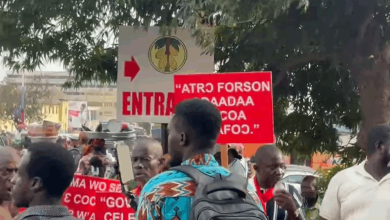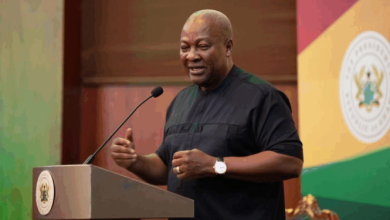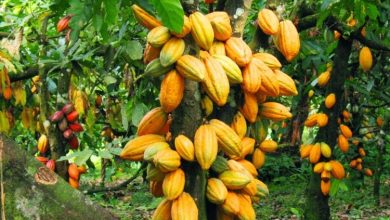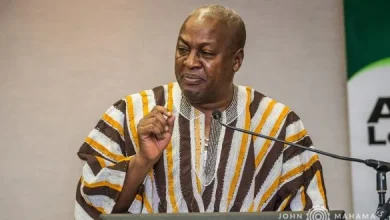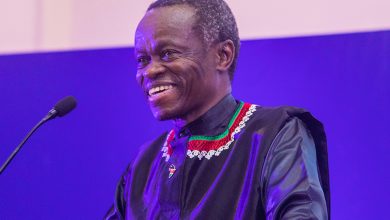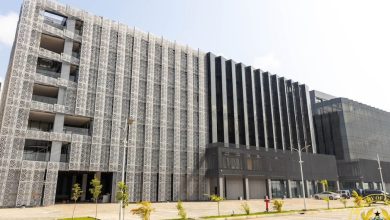Restoring confidence in economy: Trade, business group hold crunch meetings
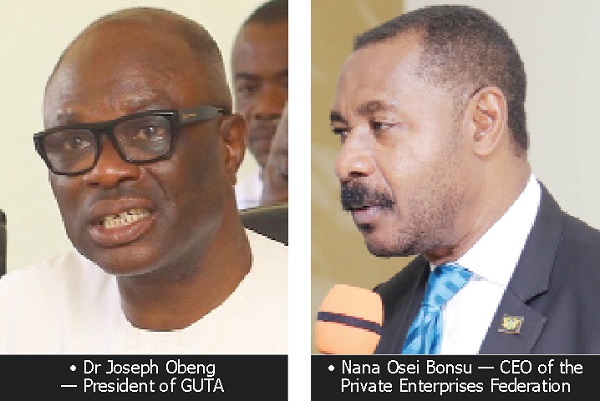
Members of trade and business associations have started high-level discussions among themselves on how to carry through some of the President’s requests for support to revive the economy in the short term.
Since yesterday, members of the Association of Ghana Industries (AGI) have been locked up in discussions on how to ramp up the production of some essential products such as vegetable oil, rice and poultry in response to the President’s call for local substitutes.
The discussions among members of the Ghana National Chamber of Commerce and Industry (GNCCI), on the other hand, are on how to increase exports from the country in order to rake in foreign exchange, while the Ghana Union of Traders Association (GUTA) is also impressing on its members how to stem the increasing prices of goods and services resulting from the economic crisis.
In separate interviews with the Daily Graphic, leaders of the associations said their meetings, which were being held nationwide, started less than 24 hours after the President’s broadcast to the nation on the state of the economy and the need for all to support efforts to steer the economy out of the crisis.
List of products
The Chief Executive Officer (CEO) of the AGI, Seth Twum-Akwaboah, said engagements among stakeholders in the manufacturing sector had produced a list of products, and that the AGI was mapping out companies that could produce them immediately and conveniently domestically for the local market.
He said the meetings were that quick because the President had earlier engaged them and explained the collaboration and the support required.
The AGI CEO said after the initial engagements among members, the AGI intended to meet with the ministries of Finance, Agriculture and Trade and Industry to firm up a road map for moving into the production phase.
“The President addressed a lot of issues, but the industrial and production areas are our main concern, and so we are building a list of products and members who will be able to produce them and engage the various ministries responsible,” Mr Twum-Akwaboah said.
Should it go as planned, he said, the AGI expected discussions and negotiations on the kind of support the government intended to provide for industries to end in not more than a week.
In his address to the state on the economic challenges and how they were being addressed, President Akufo-Addo had said: “We are making some progress with the 1D1F, but our current situation requires that we take some more stringent measures to discourage the importation of goods that we can and do produce here.”
To that end, he said, the government would intensify support and that of the banking sector to manufacture and produce in sufficient quantities local products such as rice, poultry, vegetable oil, toothpick, pasta, fruit juice, bottled water and ceramic tiles.
President commended
Commending the President for the speech on the state of the economy, Mr Twum-Akwaboah said the AGI and its members were geared towards leading the charge.
He said engaging the nation through the nationwide broadcast was crucial to help end the speculation and also restore confidence in the economy.
“We are happy that the President is urging all Ghanaians to not only patronise made-in-Ghana products but also ensure that we support industries to produce essential goods for the market,” he added.
Impose import licensing
The CEO of the Private Enterprises Federation (PEF), Nana Osei Bonsu, said the plan to realign imports to favour essential products and review standard requirements for certain imports was in the right direction.
He, however, wanted the government to tread cautiously in order not to breach international trade facilitation rules.
“I commend the move by the President to restrict imports and encourage exports, and so there was the need to impose import licensing,” he said.
He said an import licensing regime would enable importers to justify the need to import, instead of a free regime where traders brought in products over which the country already had a competitive advantage.
Partnerships
Nana Osei Bonsu said by working in partnerships, the country could overcome the economic challenges.
He explained that missing in the discussions to revive the economy was the partnership between the government and the private sector.
He added that with the government providing the needed resources, the likes of PEF were ready with the needed technical competencies to support the drive to salvage the situation.
Intensified education
The Vice-President of GUTA, Clement Boateng, said the association had also intensified education against profiteering by traders as part of measures to ease the pressure on the citizenry.
“We all know that our current situation is very critical, but some of our members and colleagues are taking undue advantage by increasing their prices astronomically,” he said.
He said GUTA did not believe in doing so and had, subsequently, started engaging members and the trading community to desist from such nefarious trade practices.
Confidence
The President of GUTA, Dr Joseph Obeng, said the association found the address to have inspired confidence and brought hope to people.
He said the members were particularly happy about plans to inject new funds into the system to shore up the country’s foreign exchange in order to stabilise the cedi.
He, however, indicated that while GUTA recognised that there was excessive importation, that was not the only factor affecting the cedi’s stability.
“We have always maintained that even with importation, the government could still use our investment laws to curtail the influx of foreigners into the trading sector, such that imports from the Far East could see a decline to aid the local production capacity,” the GUTA President said.
He pointed out that the services sector had a bigger role in addressing the cedi’s free fall and economic stability, since that sector commanded the bulk of the resources that went out of the country.
“The banking, the communications and the extractive sectors are sectors heavily controlled by the presence of foreigners and we think that the government could use the investment laws to ensure the retention of some of the repatriations on investments,” Dr Obeng said.
Exports
The CEO of the GNCCI, Mark Badu-Aboagye, said the chamber was having discussions with its counterparts in other countries to build partnerships that could drive the focus towards exports.
He said the chamber, for instance, met a delegation from Tunisia last week and the discussion was on how Ghanaian firms could export more to that country.
He explained that the chamber had made clear to its counterparts that it preferred the foreign companies producing in Ghana to exporting their produce to Ghana.
“We believe that the idea of foreign firms rushing to dump their produce in Ghana should stop,” he said.
Meanwhile, he said the President could have done more to inspire confidence in his address to the nation because there was nothing concrete to reverse the challenges.
“Whatever the President said was an aggregation of all that we knew already,” Mr Badu-Aboagye added.
Importers association
The Executive Secretary of the Importers and Exporters Association, Sampson Asaki Awingobit, said the President failed to touch on the flat rate of the Value Added Tax (VAT) for the clearance of goods at the ports, as well as freezing the new VAT amendment act implementation on essential products such as foods and medicines.
Source: Graphiconline.com

